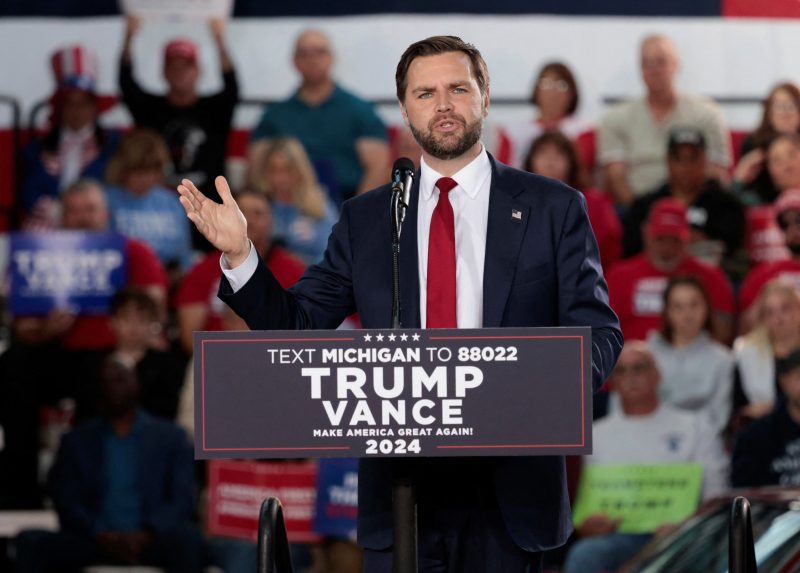
Vance Dismisses $500 Million Federal Grant for Michigan Electric Vehicle Plant as Just Table Scraps
In a recent move that has ignited both excitement and skepticism within the automotive industry, Michigan Governor Dan Vance has proposed a bold request for a $500 million federal grant to fund the construction of a new electric vehicle (EV) manufacturing plant in the state. The proposed plant has the potential to revolutionize Michigan’s automotive landscape, creating jobs and positioning the state as a key player in the transition to electric transportation. However, the proposal has stirred up debates about the allocation of resources and the role of government funding in the rapidly evolving EV market.
Governor Vance’s call for a substantial federal grant reflects Michigan’s commitment to leading the charge in sustainable transportation initiatives. With the automotive industry undergoing a paradigm shift towards electric vehicles, investing in EV manufacturing aligns with the state’s long-term economic and environmental goals. By securing the proposed federal grant, Michigan could significantly boost its EV infrastructure and solidify its position as a hub for cutting-edge automotive technology.
The planned EV plant would not only stimulate economic growth but also address pressing concerns regarding climate change and air pollution. Electric vehicles offer a cleaner and more sustainable alternative to traditional internal combustion engine vehicles, reducing greenhouse gas emissions and promoting a greener future for transportation. By investing in EV manufacturing, Michigan can actively contribute to the global effort to combat climate change and transition towards a more sustainable and environmentally friendly transportation system.
Despite the potential benefits of Governor Vance’s proposal, some critics have raised questions about the feasibility and implications of a $500 million federal grant for the EV plant. Skeptics argue that such a substantial allocation of funds could be better utilized in other sectors or distributed among multiple projects to maximize impact. Concerns have also been raised about the sustainability of government funding in driving long-term growth in the EV market, with some experts advocating for a more market-driven approach to innovation and investment in electric vehicles.
Moreover, the competitive landscape of the EV industry adds another layer of complexity to Governor Vance’s proposal. With established players like Tesla and emerging competitors such as Rivian and Lucid Motors gaining traction in the market, Michigan’s entry into EV manufacturing will face stiff competition and challenges in capturing market share. Securing a federal grant to support the new EV plant is just the first step in a broader strategy to establish Michigan as a key player in the increasingly competitive EV market.
In conclusion, Governor Dan Vance’s bold call for a $500 million federal grant to fund a new electric vehicle manufacturing plant in Michigan signals the state’s commitment to sustainable transportation and economic growth. While the proposal has the potential to transform Michigan’s automotive industry and contribute to a greener future, it also raises important questions about resource allocation, government funding, and competition in the EV market. Ultimately, the success of Michigan’s venture into EV manufacturing will depend on strategic planning, collaboration with industry stakeholders, and a clear vision for driving innovation and sustainability in the automotive sector.
